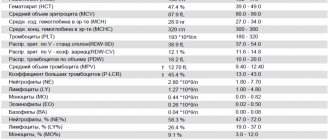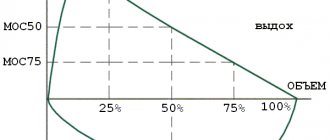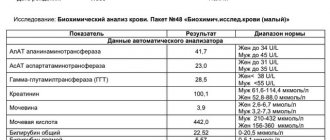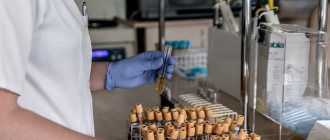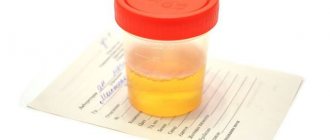Useful articles / February 26, 2020
- The measles virus is a dangerous infection that has been making headlines every now and then over the past few years. Outbreaks of measles are recorded all over the world, which is associated with the refusal of vaccination in the 90s of the last century and the lack of an immune layer of the population. Does this threaten an epidemic? After all, not every person can clearly say whether he or she has been vaccinated against measles. And if so, are there any antibodies left in the body? After all, they reduce the risk of re-infection.
Mass vaccination against measles around the world began in the 60s of the last century. Until this moment, the highly contagious disease (the most contagious and volatile of all infections!) was considered exclusively for children. Having had measles in childhood, a person received lifelong immunity. At that time, it was extremely difficult to avoid infection, so almost all children got sick. The fact is that measles is highly contagious - the figure is close to 100%, that is, the virus is quickly transmitted from a sick person to a healthy one. A simple example: if a patient in the active stage of the disease enters the same room with healthy people who do not have immunity to measles, then everyone will be infected. Cases have been described when a child with measles infected a healthy one who was on another floor of the same building - through air flows through the windows. For comparison, the contagiousness of influenza is only 1-2%. That is, the probability of catching the flu on the street or after direct contact with a patient is no more than 2%, but measles is almost 100%. What are the peculiarities of the course of the disease, the vaccine against it and immunity?
What are antibodies to coronavirus?
Antibodies (also known as immunoglobulins) are special proteins that are produced and/or produced by plasma cells.
What do immunoglobulins do?
Immunoglobulins are formed in response to foreign bacteria or viruses entering the body. They interact with the antigen (specific site of the pest) and neutralize it.
Thus, our immunity guards our health.
What classes of immunoglobulins are there?
There are 5 classes of immunoglobulins
, some of which contain subclasses.
IgA - secreted on the surface of the epithelium and present in saliva, tears, and on the surface of mucous membranes.
IgM - detected upon initial exposure to antigen.
Indicates an acute infectious process in humans.
IgG is the main class of immunoglobulins that protects against viruses, bacteria, and toxins.
IgD is found on the surface of developing B lymphocytes. The function is not installed.
IgE - secreted during an immediate allergic reaction.
Detailed description of the study
The study is carried out using a chemiluminescent immunoassay to detect IgM antibodies to the measles virus. Used for diagnosis and examination of contact persons.
Measles is an acute infectious disease. The pathogen belongs to the class of paramyxoviruses. Symptoms:
- temperature increase;
- weakness;
- damage to the conjunctiva;
- dry cough;
- characteristic maculopapular rash;
- damage to the upper respiratory tract and oral mucosa;
- photophobia.
The source of infection is a person with measles (the last 2 days of the incubation period and 4 days after the appearance of the rash), the route of transmission is airborne droplets. Susceptibility to the pathogen is high; people of any age get measles. Persons with hypovitaminosis A and immune pathologies are more prone to infection. After suffering from the disease, stable lifelong immunity is formed.
The incubation period lasts from 9 to 11 days. Once it is over, the infected person develops a rash that gradually spreads from the face and neck to the torso, and then to the legs and feet.
In 20% of cases, people with measles experience complications:
- otitis;
- pneumonia;
- bronchitis;
- encephalitis;
- diarrhea;
- blindness.
Measles is especially dangerous for pregnant women, as it leads to pathologies of fetal development, spontaneous abortion, and premature birth. Early diagnosis of infection is carried out by enzyme immunoassay with the determination of IgM. In this way, the disease can be detected before specific symptoms appear.
What to choose – qualitative or semi-quantitative analysis?
Why is qualitative and quantitative analysis carried out?
Qualitative analysis allows us to answer 2 questions:
- Were you sick or not?
- How long have you been sick?
A semi-quantitative test can answer these questions and also determine the amount of immunoglobulins in the body.
Why determine the amount of immunoglobulins?
Determining the amount of antibodies allows you to determine whether long-term immunity has been formed. It is what protects the body from re-infection with coronavirus.
Old new story: the return of measles
Before the measles vaccine was created, the disease was considered one of the most common childhood infections. These days, measles is forgotten. Many people stopped getting vaccinated, and a disease that had long been thought to be eliminated has returned.
Elena Gennadievna Koroleva, a pediatric infectious disease specialist and pediatric anesthesiologist and resuscitator at the Expert Clinic Tula, told us about measles.
— Elena Gennadievna, tell us about measles. What it is? How can you get infected with it?
— Measles is a viral disease. In 1992–1993 there was a huge outbreak of this infection in Central Asia. I was just starting to work then. This was the last year of my internship. Many people are sick. People were dying. Often adults.
Measles affects only humans. It is impossible to get this disease from a dog, cat or other animals. It is transmitted only by airborne droplets from person to person. You can become infected from a sick person when he sneezes or coughs. Viruses can be carried over long distances through the air. For example, if in a multi-storey building a person with measles walked up the stairs and sneezed, then even someone who did not personally meet him, but passed after him, can become infected. The contagiousness (infectiousness) of measles is very high. If we are not vaccinated and have not had measles before, we are guaranteed to get sick if we come into contact with such a patient.
— If an adult had measles as a child, can he become infected again?
- No never. The immunity of a person who has recovered from measles is stable and lifelong.
— And if a person received all the vaccinations as a child, can he become infected as an adult? Those. if he did not have measles, but was regularly vaccinated against it in childhood.
- The situation is different here. The measles vaccine does not provide 100% protection for life. Therefore, the vaccination must be repeated after a certain time.
— What are the symptoms of measles? Are they different for children and adults?
— The measles virus affects the upper respiratory tract (throat, trachea, bronchi) and the central nervous system. The symptoms in a child and an adult are the same. A high temperature rises (up to 40 degrees Celsius), pain in the throat, muscles, headaches appear, lymph nodes may enlarge, and severe damage to the conjunctiva occurs. Characteristic signs of measles are the development of photophobia and the appearance of the so-called Belsky-Filatov-Koplik spots opposite the upper molars (the mucosal area is as if sprinkled with semolina).
Why is it important to suspect measles in the early stages? A person may not yet know that he is sick, but he is already contagious, even if the incubation period is just beginning. It is in those days when the characteristic rash has not yet appeared that the patient already quite intensively releases the measles virus into the external environment.
— Is it true that an adult suffers a disease more severely than a child?
- Yes, definitely.
— What is the diagnosis of this disease?
- Measles in its typical course is never in doubt. Because there are signs that are characteristic only of measles, which I mentioned earlier.
But in some people the disease occurs in a mild (mild) form. In such cases, a measles test is done, from which it can be concluded whether the infection is present in the body or not. To do this, blood is taken from the patient and specific anti-measles antibodies are determined in it, namely immunoglobulin M. If it is detected, this indicates that the person has an acute measles infection.
— What methods of treating measles exist?
— There is no specific anti-measles drug. Like most viral diseases, measles has no specific treatment. Antibacterial drugs are often prescribed, because in severe cases of the disease, pneumonia and bacterial infections are associated.
— What can be the consequences and complications after measles? How dangerous is this disease?
— Measles is very dangerous. In children, infection can lead to the development of laryngotracheitis. The entire tracheal mucosa swells. The airways become so narrow that it is impossible to breathe. Severe pneumonia and meningoencephalitis are the most terrible complications.
— There is evidence that the incidence of measles in the world has been increasing in recent years. What contributes to the spread of this disease?
“People have forgotten what measles is.” You may know that there are anti-vaccination campaigns going on. Many people refuse vaccinations and do it very recklessly. I think this is what is causing the rise in measles.
— How many times are children and adults vaccinated against measles?
— Children receive their first vaccination a year. Then revaccination at 6–7 years. Adults are vaccinated against measles at ages 22–29. And then once every ten years.
— Can the measles vaccination be done at any age?
- Yes.
— Who should not be vaccinated?
— People suffering from immunodeficiency (including patients with HIV infection) and those undergoing chemotherapy.
— What can you say to those who, in the absence of contraindications to vaccination, are afraid of it?
— Measles is a disease that can lead to death or disability. Those who believe that vaccinations are not necessary are putting themselves and others at risk. You need to talk to such people, convince them, explain them. They just don't know how serious this disease is and how people suffer. Therefore, it is definitely necessary to get vaccinated.
— Are there other preventive measures besides vaccinations?
— In cases where vaccination is contraindicated, and contact with a patient with measles has occurred, ready-made anti-measles immunoglobulin is used. This drug is obtained from individuals who already have antibodies against measles. When using it, the patient will either not get sick at all, or will suffer a mild infection. This is called passive immunization.
Or, for example, this situation. A child came to see me, and I diagnosed him with measles. What measures should I take to prevent those who come after him from getting sick? The measles virus is unstable in the external environment. It is necessary to treat the room where the patient was: ventilate the room, do wet cleaning, turn on ultraviolet irradiation.
The disease may appear within 21 days. Therefore, it is imperative to monitor those who were in contact with the patient.
For reference
Koroleva Elena Gennadievna
Graduate of the pediatric faculty of the Kyrgyz State Medical Institute in 1992.
From 1992 to 1993, she completed an internship in pediatric infections.
In Frunze (Bishkek) she worked in the Republican Infectious Diseases Hospital as a children's infectious disease specialist. Then - a resuscitator in the intensive care unit for infectious patients.
In Tula, she worked at the regional children's hospital for 11 years. She headed the intensive care unit for 7 years.
Currently, he is an infectious disease doctor, anesthesiologist-resuscitator, and pediatric anesthesiologist-resuscitator at the Expert Clinic, Tula.
Decoding the results of the test for antibodies to coronavirus
How to decipher a qualitative coronavirus antibody test
| Yes/No | Ig G (Eat) | Ig G (No) |
| Ig M (Yes) | 1 option | Option 2 |
| 5-10 weeks have passed since infection. IgM is still present in the blood, but IgG is already being formed | Acute phase of the disease. 1-3 weeks have passed since infection | |
| Ig M (No) | Option 3 | Option 4 |
| Several months have passed since the illness. You may have had the disease asymptomatically | You have not encountered any viruses or no more than 7 days have passed since infection |
Antibodies to coronavirus - table with interpretation of results
In the 2nd and 4th version
(if there are suspicious symptoms), it is recommended to take a PCR test for coronavirus to identify the pest.
The complete absence of immunoglobulins may also mean that:
1) The preparation conditions were not met and the result was distorted
2) The symptoms of influenza or ARVI were similar to the symptoms of coronavirus,
3) The patient suffered a mild form of the disease and did not develop antibodies.
4) The patient suffered a severe form of the disease, and the antibodies quickly disappeared.
Research method - Enzyme-linked immunosorbent assay (ELISA)
Material for research - Blood serum
Measles (Measles antibodies IgG, Measles (Rubeola) Antibody IgG, Anti measles virus igG). The disease is caused by the measles virus (paramyxovirus family). Transmission of the virus occurs through airborne droplets. The disease manifests itself as malaise, fever, cough, runny nose, and conjunctivitis. Over the next 5 to 6 days, patients are most contagious. Around the 14th day, a characteristic rash appears; the rash is often accompanied by headache, muscle pain, abdominal pain, vomiting, and diarrhea.
A pronounced enlargement of the lymph nodes and spleen that appears at the beginning of the disease can persist for several weeks. The most severe complications of measles include damage to the central nervous system. After measles, persistent lifelong immunity develops. A live measles vaccine can also provide intense immunity. Almost all adults have immunity against measles, either due to previous illness or vaccination. Measles is rare in pregnant women and can cause stillbirth, premature birth, and spontaneous abortion. However, measles does not cause birth defects in the fetus. In mothers who have immunity against measles, newborn children are protected from infection by maternal antibodies until 6–7 months of age after birth. Starting from the second half of life, children’s susceptibility to the disease increases.
The diagnosis of measles is made based on probable contact with a person with measles, the presence of a characteristic rash, a temperature above 38.4ºC for more than 3 days, as well as other symptoms, for example, conjunctivitis, difficulty breathing. In case of difficulties in diagnosing measles based on the clinical picture of the disease, it is advisable to use serological tests: determination of antibodies to the measles virus IgM and IgG. In addition, nonspecific laboratory signs of the disease are leukopenia with a decrease in the absolute number of neutrophils and a pronounced decrease in the number of lymphocytes in a general blood test in the prodromal period and the period of rash. IgG antibodies to measles virus appear after IgM antibodies, approximately 2 weeks after infection.
During the further development of the immune response, their concentration increases rapidly. IgG antibodies in the blood can be detected in almost all patients with measles by the 2nd day of the appearance of the rash. IgG antibodies after an illness usually persist for life. Also, the presence of IgG antibodies against the virus can be detected after vaccination. Their presence in a blood test for measles can indicate the presence of immunity to this disease. In newborns, maternal anti-measles IgG antibodies obtained through the placenta from the mother’s blood during pregnancy can be detected in the blood. They are detected in children up to 6–7 months of age. Anti-measles IgM antibodies do not pass through the placenta. Upon repeated contact with the virus, immune individuals experience a rapid increase in the titer of IgG antibodies in a blood test for measles, which provides protection against infection.
Interpretation of test results is for informational purposes only, is not a diagnosis and does not replace medical advice. Reference values may differ from those indicated depending on the equipment used, the actual values will be indicated on the results form.
A positive result (> 0.18 IU/ml) indicates immunity against the measles virus (past illness or vaccination) or acute infection (if clinical signs are present and the IgM antibody titer is increasing).
A negative result (<0.12 IU/ml) of the test indicates a lack of immunity against the measles virus (there was no measles disease in the past, no vaccination was carried out, or vaccination was not effective) or early stages of the disease (the test must be repeated after 10-14 days together with the study of IgM antibodies).
If a questionable result is obtained (0.12 - 0.18 IU/ml), the test should be repeated after 10 - 14 days.
Unit of measurement: IU/ml
Reference values:
- <0.12 – the result is negative.
- 0.12 – 0.18 – the result is doubtful
- ≥ 0.18 – positive result
Ig G - interpretation of the test for antibodies to coronavirus
To determine class G immunoglobulins in the blood, a qualitative and quantitative method for determining antibodies is used. Below is a table with a breakdown of the enzyme immunoassay for coronavirus (igG indicator for coronavirus).
Coronavirus antibody index - transcript of captions
| Result | Index | Meaning |
| Negative | Less than 0.8 | The patient either did not encounter the disease or underwent the procedure in the acute phase. |
| Border | 0,8-1,1 | You need to do a repeat test after 14 days. Perhaps the test was done at the onset of the disease or during the recovery process. |
| Positive | More than 1.1 | This level of antibodies to coronavirus in adults is normal. The person had coronavirus infection several months ago, and humoral immunity had time to develop. |
Class G antibodies to coronavirus - interpretation of results
An antibody titer to coronavirus of 1,800 (positive result) is normal. In this case, immunoglobulins of class A and M should be absent in the blood. Their presence indicates the stage of recovery.
Antibodies to measles virus IgG, Measles virus IgG quality.
Antibodies to measles virus IgG, Measles virus IgG quality
- a test for retrospective diagnosis of measles (not previously identified), or current infection, as well as assessment of the strength of immunity against measles.
Measles
is an acute infectious viral disease caused by the Measles virus. Measles virus is an RNA virus that belongs to the paramyxovirus family, genus Morbillivirus. This virus quickly dies outside the human body, since it is unstable in the external environment.
The main route of transmission of the virus is airborne droplets. The measles virus mainly affects the mucous membrane of the back of the throat and respiratory tract.
Measles is a highly contagious disease that most often affects preschool children. It is found mainly in the cold season. On the 9th day after infection, fever, cough, and runny nose appear. On the 14th day a characteristic rash appears. People who have not had measles remain highly susceptible and can become ill at any time in their lives. Post-infectious immunity is usually lifelong, but there are cases of repeated diseases. Measles is rare in pregnant women, but in this case, premature birth and stillbirth are possible. No fetal pathology is detected. Infants of mothers who are immune to measles are protected from infection by maternal antibodies passed into their blood through the placenta until 6–7 months of age after birth. From the age of two, children’s sensitivity to the disease increases.
Antibodies to measles
IgG antibodies to the measles virus appear after IgM antibodies, approximately 2 weeks after infection. During the further development of the immune response, their concentration increases rapidly. Specific antibodies in the blood can be diagnosed in almost all patients with measles after 2 days of the appearance of the rash. In most cases, after an illness, IgG antibodies remain for life. IgG against the measles virus is also detected after vaccination. By their presence in the blood serum, one can judge the presence of immunity to this disease. In infants up to 6–7 months of age, maternal IgG antibodies obtained through the placenta from the mother’s blood during pregnancy can be detected in the blood (IgM antibodies do not pass through the placenta). Upon repeated contact with the virus, immune individuals experience a rapid increase in titers of highly specific IgG, which provides protection against infection (no clinical manifestations or virus shedding are observed).
Re-infection after an infection or after vaccination leads to an increase in the titer of IgG antibodies, which protects a person from infection and does not lead to the development of clinical manifestations of the disease.
Indications:
- diagnosis of measles when the clinical picture of the disease manifests itself;
- addressing the issue of immunity and vaccination.
Preparation
It is recommended to donate blood in the morning, between 8 and 11 am. Blood is drawn on an empty stomach, after 4–6 hours of fasting. It is allowed to drink water without gas and sugar. On the eve of the examination, food overload should be avoided.
Interpretation of results
The test is qualitative. The result is given in terms of “positive”, “negative” or “doubtful”.
Positive result:
- period of convalescence (recovery);
- end of the acute period;
- post-vaccination period (development of immunity).
Negative result:
- there was no measles virus infection;
- low antibody titer at the beginning of infection;
- no vaccination was carried out;
- weakened immune system;
- factors distorting the result;
- hemolysis of a blood sample.
BAU/ml - new interpretation of the test for antibodies to coronavirus
The World Health Organization has approved a new international standard for the determination of immunoglobulins for coronavirus, with the unit of measurement BAU (translated as “binding antibody coefficient”).
Interpretation of quantitative analysis for antibodies to coronavirus
Laboratory diagnostics
the level of immunity protection against coronavirus is carried out by studying immunoglobulins to the S-protein of the virus. To facilitate the interpretation of the study results, it was proposed to use a universal measurement system.
Conversion table for antibody test results from different manufacturers in BAU/ml
| Manufacturer | Conversion factor to BAU/ml |
| Abbott ARCHITECT | 0,142 |
| Roche | 1 |
Immune status for measles
April 12, 2021
The only measure to prevent measles is immunization.
As part of the national calendar of preventive vaccinations, the following is carried out:
at 12 months – vaccination (first vaccination in life), at 6 years – revaccination (second vaccination).
Child aged 1 year to 5 years 11 months. 29 days must have one vaccination against measles, aged 6 years to 17 years 11 months. 29 days two vaccinations against measles.
If a person has had measles, he is not subject to measles vaccinations during his life. Those who have had measles have lifelong immunity.
An adult is not subject to vaccination if there is evidence of two measles vaccinations given at any age, including in childhood.
The following adults are subject to vaccination against measles: those who have not been sick, not vaccinated, vaccinated once, who do not have information about vaccinations: the entire population under 35 years of age (inclusive), regardless of profession, from 36 to 55 years of age (inclusive), belonging to risk groups.
Risk groups include employees of medical and educational organizations, trade, transport, public utilities and social spheres; persons working on a rotational basis and employees of state control bodies at checkpoints across the state border of the Russian Federation.
Employees of medical organizations (without age restrictions) are recommended to have two vaccinations against measles or information about having had measles, confirmed by documentation or serological methods.
As part of the calendar of preventive vaccinations for epidemic indications, contact persons without age restrictions from foci of suspected measles who have not previously been ill, have not been vaccinated and do not have information about preventive vaccinations against measles or have been vaccinated once are subject to vaccination within 72 hours.
In the virological research laboratory of the Center for Hygiene and Epidemiology in the Republic of Bashkortostan, you can check your immune status for measles.
What is delivered for research: blood serum from a vein in the amount of 1 ml., delivery at a temperature of 2 to 8 ° C.
The price list for serological tests for immunity using ELISA in blood serum is 254 rubles 40 kopecks.
A positive test result for measles immunoglobulin G confirms protection against measles. A negative and questionable result indicates that a person can become infected with measles and needs to be vaccinated.
Indications for an individual study of immune status: loss by an adult of records in the medical records of measles in childhood; incomplete data on vaccinations (lack of series and name of the vaccine); the presence of factors that contribute to a decrease in immunity (hormone therapy, chemotherapy, anthelmintic drugs, HIV infection), occupational risk of infection due to contact with infectious patients (medical workers, etc.).
The research results must be included in the “Certificate of Preventive Vaccinations”, form No. 156/у section “Serological studies to determine the strength of immunity.”


